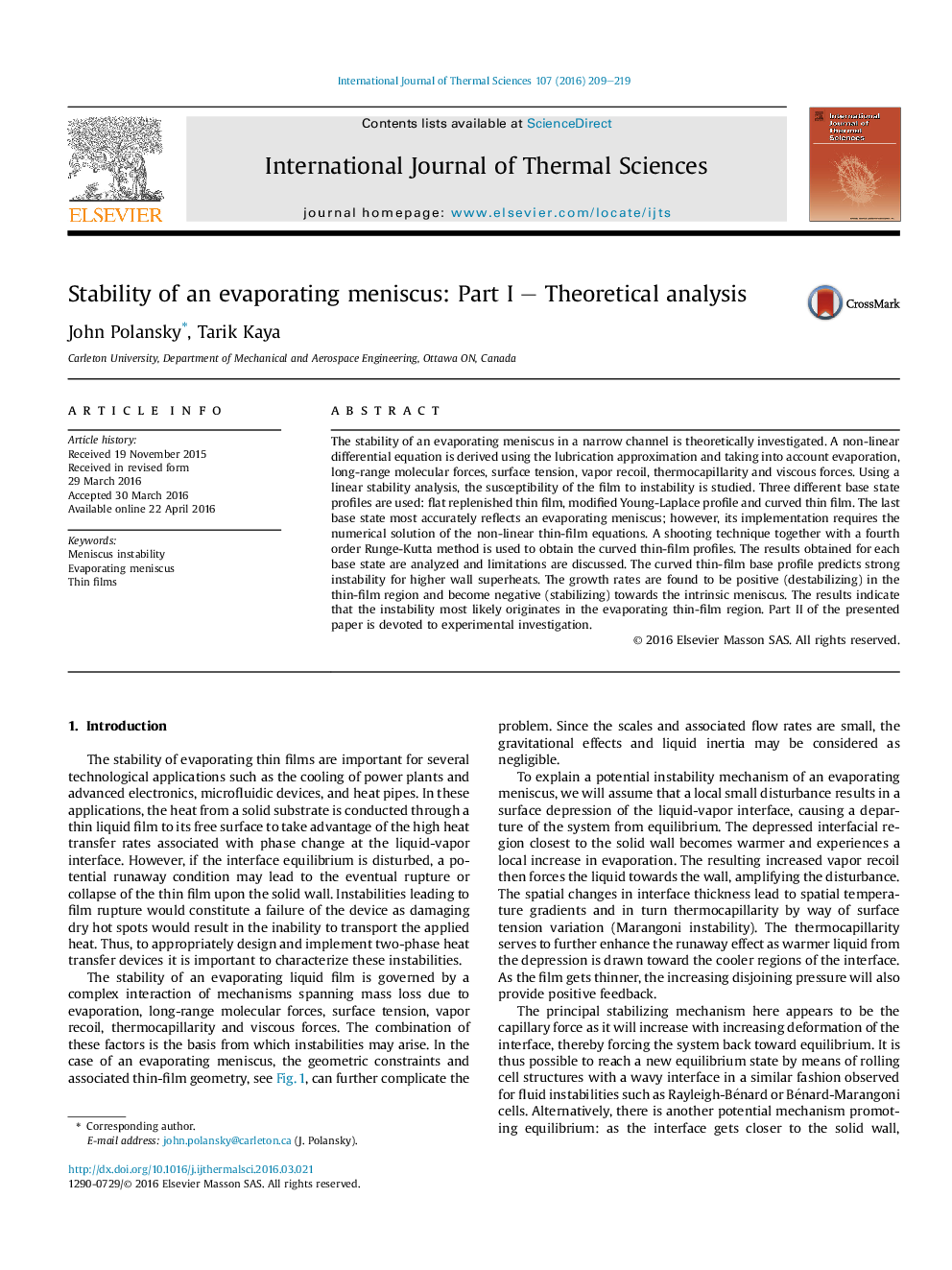| Article ID | Journal | Published Year | Pages | File Type |
|---|---|---|---|---|
| 668425 | International Journal of Thermal Sciences | 2016 | 11 Pages |
The stability of an evaporating meniscus in a narrow channel is theoretically investigated. A non-linear differential equation is derived using the lubrication approximation and taking into account evaporation, long-range molecular forces, surface tension, vapor recoil, thermocapillarity and viscous forces. Using a linear stability analysis, the susceptibility of the film to instability is studied. Three different base state profiles are used: flat replenished thin film, modified Young-Laplace profile and curved thin film. The last base state most accurately reflects an evaporating meniscus; however, its implementation requires the numerical solution of the non-linear thin-film equations. A shooting technique together with a fourth order Runge-Kutta method is used to obtain the curved thin-film profiles. The results obtained for each base state are analyzed and limitations are discussed. The curved thin-film base profile predicts strong instability for higher wall superheats. The growth rates are found to be positive (destabilizing) in the thin-film region and become negative (stabilizing) towards the intrinsic meniscus. The results indicate that the instability most likely originates in the evaporating thin-film region. Part II of the presented paper is devoted to experimental investigation.
